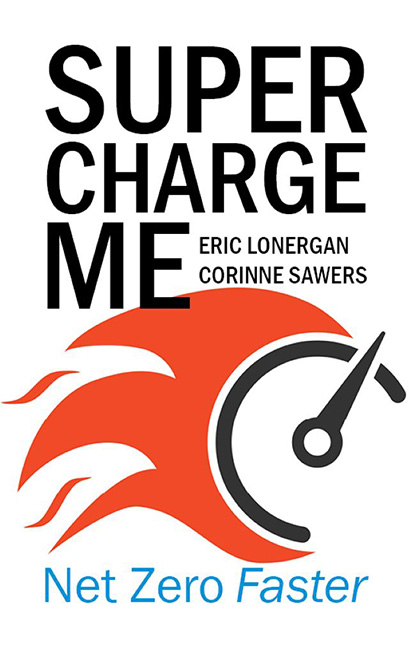Book contents
- Frontmatter
- Contents
- Acknowledgements
- Introduction: A Failure of the Mind
- 1 Supercharging: What is it?
- 2 Corporate Philosophers
- 3 Money Gets the Message
- 4 Supercharge the Individual
- 5 Supercharge the Nation
- 6 Supercharge the World
- 7 Why This is Not a Book About Trees
- Conclusion: Speaking With One Voice
- Notes
- Index
2 - Corporate Philosophers
Published online by Cambridge University Press: 20 January 2024
- Frontmatter
- Contents
- Acknowledgements
- Introduction: A Failure of the Mind
- 1 Supercharging: What is it?
- 2 Corporate Philosophers
- 3 Money Gets the Message
- 4 Supercharge the Individual
- 5 Supercharge the Nation
- 6 Supercharge the World
- 7 Why This is Not a Book About Trees
- Conclusion: Speaking With One Voice
- Notes
- Index
Summary
Eric: When it comes to climate change most people think capitalism is part of the problem, that the profit motive pays no regard to the planet. So, Corinne, when did this change?
Corinne: During lockdown.
Eric: Your view is that an irreversible culture change is occurring. Is that right, and if so why?
Corinne: If you had told me five years ago that in 2022 most major financial firms and banks would have signed up to getting their “financed emissions” down to net zero by 2050, that the big oil companies would be transitioning to renewables, that consumer goods companies would have started the hard work of reducing emissions across their supply chains, I would not have believed you. Well, they are. We need to understand why, we need a concrete measure for what they’re doing, and we need to work out how to supercharge the process. This culture change means that the private sector is primed to be highly responsive to smart policies. That's the opportunity, we must not miss it.
Eric: So why has global capitalism suddenly woken up to the reality that it is destroying the planet?
Corinne: Rebecca Henderson opens her book Reimagining Capitalism with a quote from the biologist Edward Wilson: “We have paleolithic emotions, mediaeval institutions, and godlike technology”. That is not something we are going to change. So if we are to accelerate this transformation of the economy, we need to shift incentives in a way that is realistic about how human beings operate. This same insight holds for corporations.
Eric: Are businesses also motivated by paleolithic emotions?
Corinne: Yes. The corporate version is profit and loss. That’s the key operating logic of business – making money.
Eric: So explain the relationship between responding to the climate crisis and making money. Why has business decided that cutting emissions will boost the bottom line? Isn't the opposite more plausible, that there's a tension between profitable growth and acting on climate?
Corinne: That framing is too simplistic. Three discrete forces are at work, all of which affect company profits and the incentives of senior executives. Share prices are already being impacted by environmental factors. This is a huge motivator. Stock prices determine companies’ ability to access capital for funding their businesses, the cost of making acquisitions, and many executives’ remuneration is linked to the stock price.
- Type
- Chapter
- Information
- Supercharge MeNet Zero Faster, pp. 35 - 58Publisher: Agenda PublishingPrint publication year: 2022



